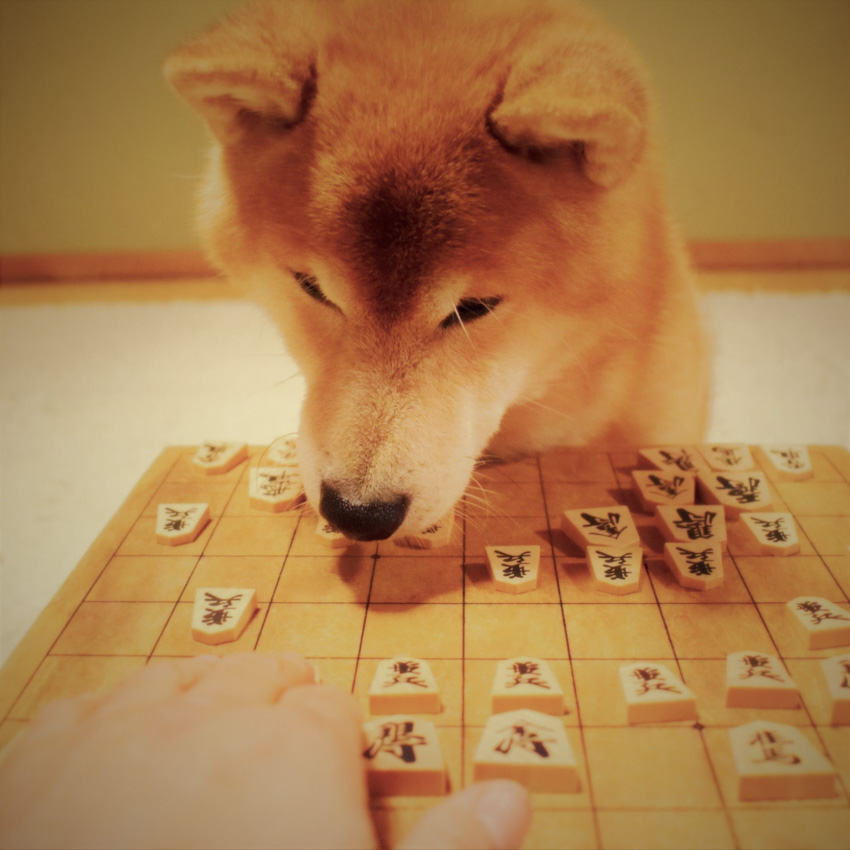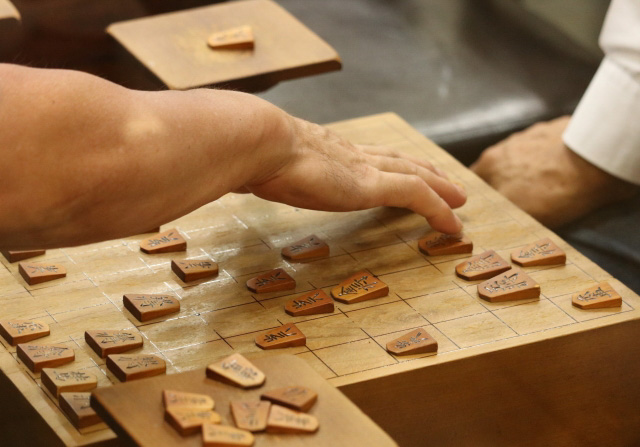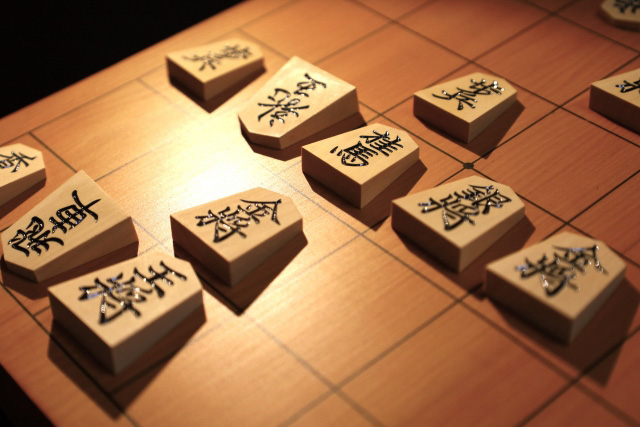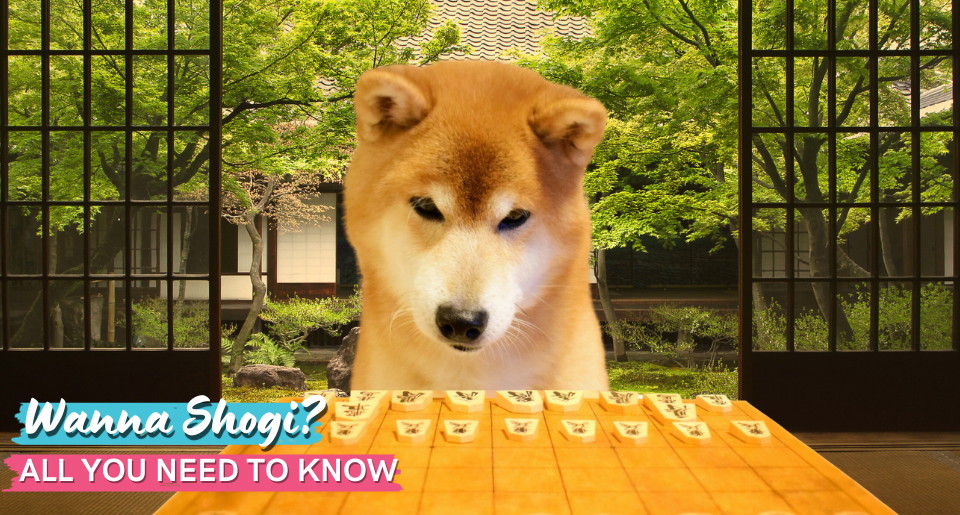Contents
Introduction
Looking for a mental workout in your two-player gaming session? This brain-teaser Japanese board game is exactly what you need!
Board games bring joy by sparking your brain into strategic thinking, problem-solving, and social connections. They boost cognitive skills like memory, critical thinking, and creativity, all while serving up a good time and a rewarding sense of accomplishment.
Although board games won't exactly turn you into an amused Einstein, they sure offer a fantastic mix of sharpening various mental skills while providing the much-needed fun during the quiet game. This holds particularly true when we're talking about the now-famous traditional Japanese board game, Shogi (Japanese Chess, 将棋).
Alright, let's cut to the chase (pun totally intended) and dive right into the heart of this age-old board game that's been entertaining players for centuries, and it's not showing any signs of stopping!
Shogi: A High IQ Game Like No Other

Shogi, often called "Japanese chess," has been a staple of Japanese entertainment for centuries, with its current form tracing back to the 16th century. The traditional Japanese board game is famous for its deep strategic complexity and enjoys immense popularity in Japan and beyond, boasting a dedicated following of both enthusiasts and professional players.
Although it shares some similarities with international chess, Shogi brings a unique set of features to the table that sets it apart from other board games. This brain-teaser game particularly appeals to those in search of a twist in their two-player gaming experience with a touch of traditional sophistication that might just boost your IQ as you play!
Winning at Shogi: The Ultimate Guide to Strategic Victory

We've all been there – the frustration and occasional blush of embarrassment that comes with losing in a board game. Leave luck out of the equation in Shogi and keep reading as we break down the essentials of the game, including key features and rules, to help you secure those wins!
Board and Setup
- Shogi is played on a 9x9 grid, making it slightly larger than the 8x8 grid of international chess.
- Each player starts with 20 pieces, and these pieces are placed on the board in two rows facing the opponent.
Pieces
- Shogi features a variety of pieces, each with its own unique movement rules. Some of the main pieces include the king, rook, bishop, gold general, silver general, knight, lance, and pawn.
- The king, similar to chess, is the most crucial piece, and the primary objective is to checkmate the opponent's king.
- Unlike chess, captured pieces can be reintroduced into the game on your side by the capturing player, adding an extra layer of complexity.
Object of the Game
- The main objective of Shogi is to checkmate your opponent's king.
- Unlike chess, there is no "checkmate" announcement; instead, the game continues until a player admits defeat.
Movement and Promotion
- Shogi pieces have restricted movement patterns, with some pieces promoting to more powerful versions when they reach the opponent's back rank.
- Promotion is a fundamental aspect of the game, and it enhances a piece's abilities, often changing its movement patterns.
Drop Rule
- In addition to moving their own pieces, players can "drop" captured pieces from their reserve onto the board during their turn.
- Dropped pieces retain their original moves and can be strategically placed to strengthen one's position.
Game Strategies
- Shogi is a game of deep strategy, involving tactics, positional play, and long-term planning.
- Players must consider the dynamic interplay of all pieces on the board, as well as potential promotions and drops, to achieve victory.
End of the Game
- The game can end in several ways, including checkmate, stalemate, or if both players agree to a draw.
- It's customary for the losing player to resign when their position becomes untenable.
From Japan to Your Home: Order Japanese Shogi with Ease!

Now that you've armed yourself with the know-how to ace the game and (fingers crossed) avoid the bitter taste of defeat, it's time to grab yourself some authentic Shogi straight from its Japanese roots. And nope, you don't have to pack your bags and head to Japan – ZenPlus has got you covered!
The e-commerce giant ZenPlus has been leading the industry for nearly a decade, serving as the host for over 3,000 Japanese online retail shops and proudly showcasing a massive collection of over 5 million authentic items that are a rare find beyond Japan's borders.
Quality and convenience, hand in hand—that's the ZenPlus way. They collaborate directly with Japanese sellers from all across the country to ensure you get the very best Japan has to offer. They've made sure that every step of your online shopping journey, from selecting items to choosing your delivery address and making payments, feels just as familiar as if you're ordering within your own country.
A fun and mentally satisfying Shogi game is waiting for you—Click HERE to explore the wide array of Shogi board games available from trusted stores in Japan. Pick your favorite, have it easily delivered right to your doorstep, and then gather your friends and family for some strategic fun. And, by the way, it's a clever idea to impress your crush by teaching them Shogi and casually showing off your smarts – just a friendly suggestion!

